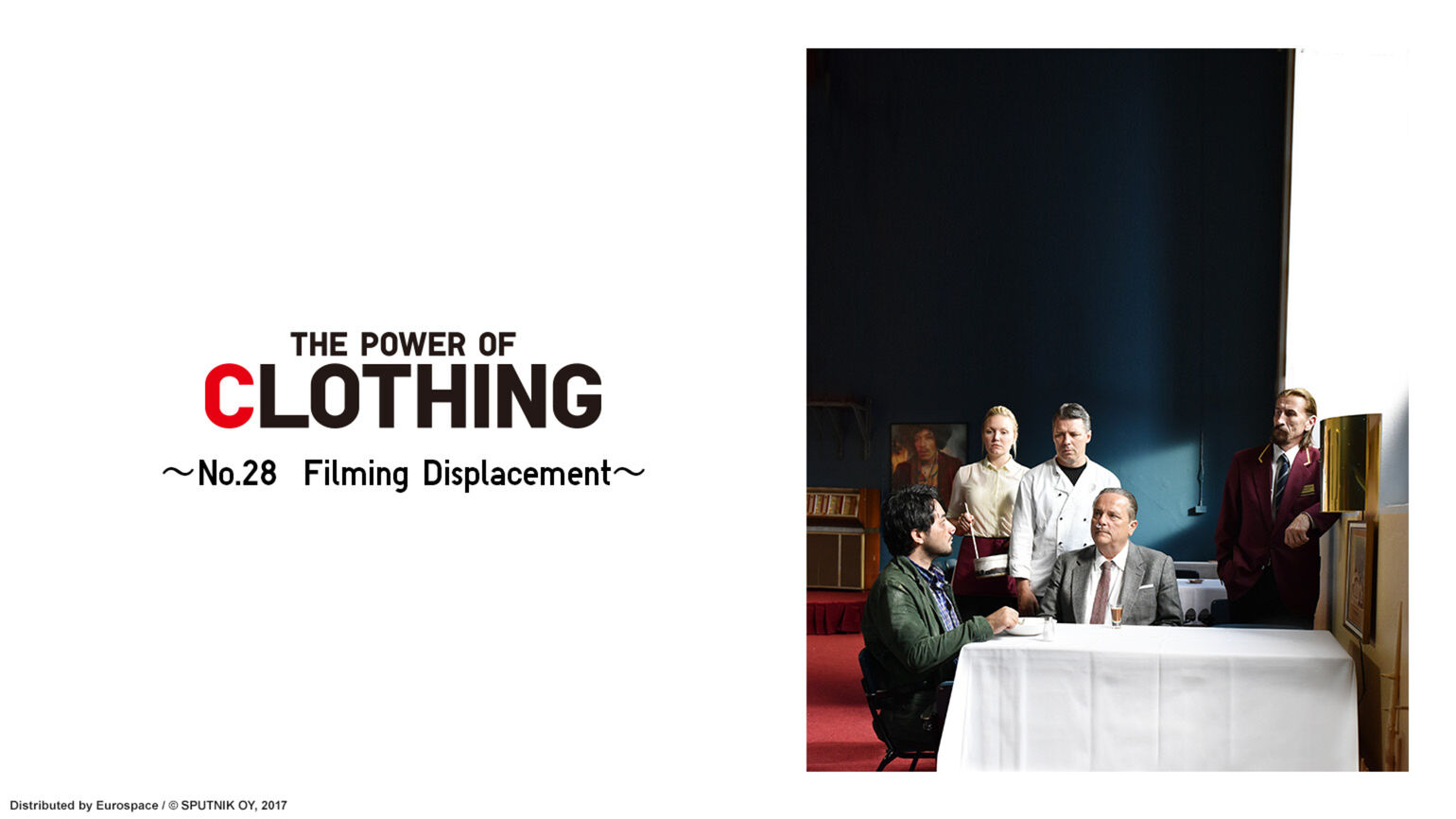
Filming Displacement
~ The Power of Clothing No.28 ~
Not reportage or social inquiry, but a portrayal of people living their lives. Cinema shows us what comes after displacement.
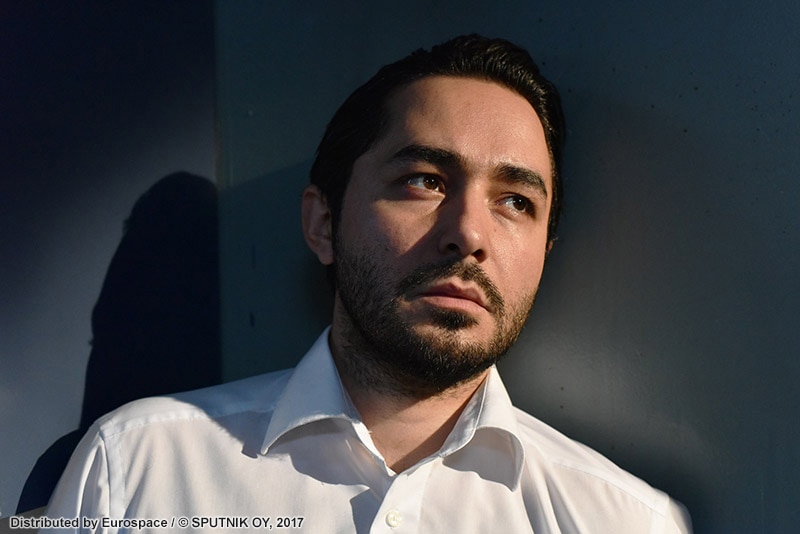
At the premier of The Other Side of Hope, director Aki Kaurismäki said that “my goal with this film was to upend the European tendency to view refugees as either pitiable victims or poverty-stricken migrants who will steal your job, your wife, your house, your car.” Film can make a difference in the lives of refugees. This past January at the International Film Festival Rotterdam, a new project called the Displacement Film Fund was announced, and UNIQLO has offered its wholehearted support to the initiative.
How refugees, asylum seekers, people who are displaced, often feel invisible, and how could we make their stories more visible.
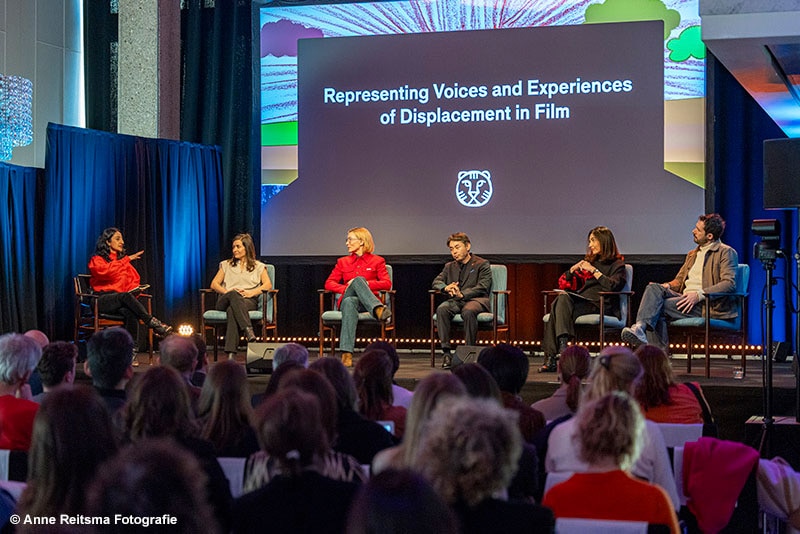
Held in the Netherlands, International Film Festival Rotterdam (IFFR) is one of Europe’s foremost film festivals. This year’s events included the announcement of the new Displacement Film Fund, as well as a panel discussion between film directors and other figures involved with the fund. Here are some highlights from the panel.
………………………………………………………………
We announce a new short film grant scheme which will benefit five filmmakers in its pilot version.
We are deeply proud of the framework to support filmmakers across the globe, making ground-breaking work in often hugely challenging environments and that we are trusted as the ideal management partner to enable this vital fund. As a festival that is fostering a very large community, and for a short filmmaking forum, out of the 450 films included, more than half are premiering works that are short or medium length. The fact that we now have a chance to also fund some of the making of the short films is a great milestone for IFFR as well.
──Vanja Kaludjercic (IFFR Festival Director)
………………………………………………………………
The Displacement Film Fund was established to champion and fund the work of displaced filmmakers, or filmmakers with a proven track record of creating authentic storytelling on the experiences of displaced people. We see this, of course, as being incredibly urgent at this moment. I’d particularly like to acknowledge the leadership of Cate Blanchett, who has been the driving force behind this initiative since a group of individuals met around the table at the Global Refugee Forum organized by UNHCR in December 2023. And also to express much gratitude to Koji Yanai, one of the founding members.
──Clare Stewart (IFFR Managing Director)
………………………………………………………………
Right now, one in 67 people globally are forcibly displaced. Behind that staggering statistic are real stories, individual stories of hope, of resilience, and of loss. We all believe that film has a crucial part to play in amplifying those stories and giving voice to people who don’t have it.
──Uzma Hasan (Panel discussion moderator / Film producer)
………………………………………………………………
It has to do with the urgency of the situation. I find it bewildering, I think we all do, how vast and huge and urgent this situation is, yet these stories don’t seem to be getting into the mainstream.
I’ve been a UNHCR Goodwill Ambassador for almost 10 years now. I’ve had the privilege of going into the field with UNHCR to meet refugees, asylum seekers, stateless people, displaced people, and hear their stories. Their lived experience has been inspirational to me. I’ve been inspired by their resilience, their courage, their fortitude. Their stories beggar belief. Their great good humor and generosity in the face of great deprivation. We were talking about how refugees, asylum seekers, people who are displaced, often feel invisible, and how could we make their stories more visible. So the idea was to support them during the time of their displacement, but also not to ghettoize the stories, to have them reach the mainstream.
──Cate Blanchett (Actor / UNHCR Goodwill Ambassador)
………………………………………………………………
We feel that the Hubert Bals Fund, the legacy that it has, its 30-plus years of operating in different parts of the world, where unfortunately and quite realistically, the film infrastructure is nonexistent, or is very weak, or the freedom of expression is really hindered. So this is not really a new field of action for us, but it’s really a scaled-up mission, really pointing towards that urgency. The short film form is really something IFFR is very strong on. This is the festival that celebrates the short film form in all its forms and shapes. So somehow, on both funding strategic and the cooperation level, but also on the creative side, which is so important, we feel that with this support, with this level of new partnership, we will be able to reach out to much wider audiences and that is our joint aim as well.
──Tamara Tatishvili (Managing partner, Head of The Hubert Bals Fund)
………………………………………………………………
As a company, we have contributed and supported refugees for more than 20 years. When we started to support refugees, the population of refugees was 30 to 40 million, and now tripled to more than 120 million. So we have to think about more innovative ways to support refugees. We have to join, we have to unite, to overcome these issues, to tackle the issues from multiple angles. This fund is a very pure form of support, a pure devotion to helping displaced people, to give them a voice, to bring them to the mainstream.
──Koji Yanai (UNIQLO)
………………………………………………………………
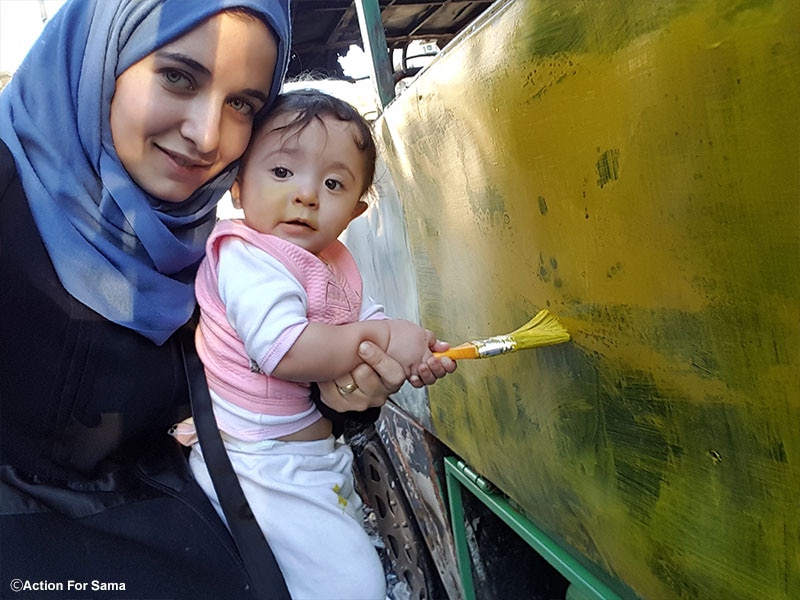
The film tells the story of Waad al-Kateab’s life through five years of the uprising in Aleppo, Syria as she falls in love, gets married and gives birth to Sama, all while cataclysmic conflict rises around her. For Sama was granted "L'oeil d'or", the best documentary movie award in Cannes Film Festival in 2019.
When I made For Sama, the first challenge I faced was the feeling that no one wanted to hear this story. People are tired of hearing about displacement and refugees—it’s everywhere—and the last thing they want is to walk into a cinema and watch yet another film about it.
But for me, telling this story was about trying to understand what had happened, to find a way to live with it, to accept it. When the film was released and people came to see it, I saw how it could truly change minds and hearts. It made me, and the stories of so many people like me, feel seen.
And when you’re going through so much in your life while trying to make a film—which I’m sure many here can relate to—you need time, space, and support to stay creative and keep going.
──Waad Al-Kateab (Filmmaker / Citizen journalist)
………………………………………………………………
I met Amin when I was 15. I didn’t just come from the outside trying to make a refugee documentary. I was interested in my friend, and I think that fundamental human interest is crucial to be able to tell these stories. Waad’s film “For Sama” is so incredibly moving because it’s not just about the horrors of war, it’s also about love, it’s also about motherhood. “FLEE” opened up the door to a lot of people who wouldn’t normally be exposed to these kinds of stories. I’m really hoping that the people who will get these grants will use their creativity and really surprise us, excite us, with stories that are human, and not just refugee stories but human stories that will touch us all.
──Jonas Poher Rasmussen (Film director)
………………………………………………………………
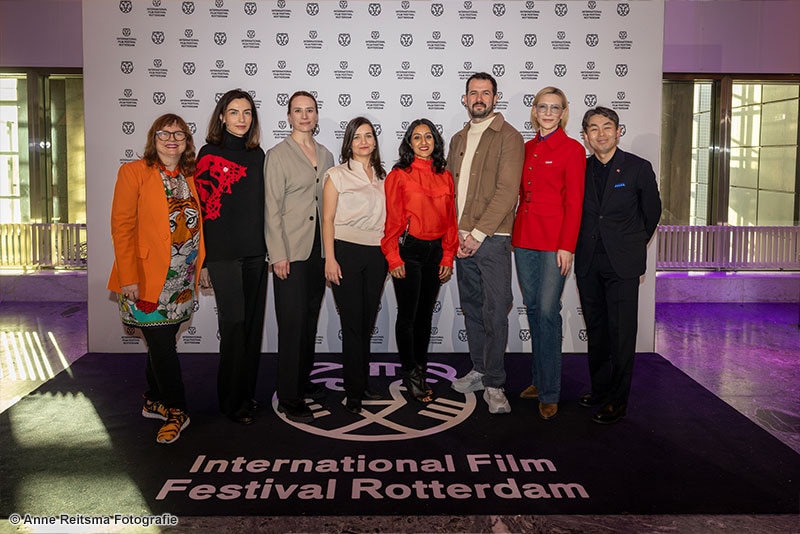
(From Left) Clare Stewart, Tamara Tatishvili, Vanja Kaludjercic, Waad Al-Kateab, Uzma Hasan, Jonas Poher Rasmussen, Cate Blanchett, Koji Yanai
Nothing transcends languages and borders like the movies.
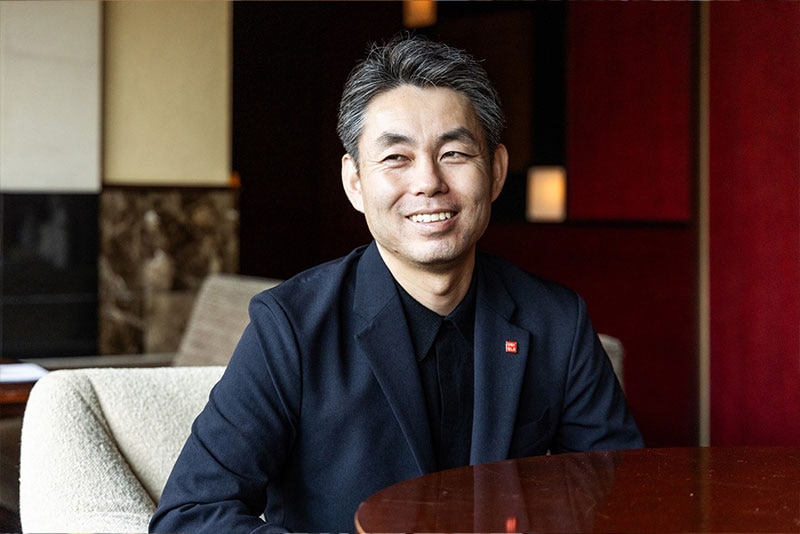
Koji Yanai / Director, Fast Retailing Co., Ltd. Leads sustainability and marketing. Producer of The Tokyo Toilet, a project renovating seventeen public bathrooms in Shibuya, and Perfect Days, a film directed by Wim Wenders.
Let’s look behind the scenes at the Global Refugee Forum, where ideas were refined by a diverse group including figures from the film world and student refugees from Afghanistan.
Q1: Please tell us how UNIQLO became involved with the establishment of the Displacement Film Fund.
Once every four years, the Global Refugee Forum convenes to discuss solutions to problems faced by refugees. Centering on UNHCR, this is a forum where governmental and business leaders can interact with people who have experienced displacement along with members of the public.
In 2023, the event was co-convened by Japan, with UNIQLO as one of the business presenters, giving me the chance to attend.
The night before, we had a chance to work through our ideas over a shared dinner. Seated at my table were figures like Ke Huy Quan, the winner of an Academy Award for Best Supporting Actor and a former refugee himself. There was also a refugee from Afghanistan now studying in Berlin and the owner of an enterprise supporting refugees in the Middle East. We all got to talking about how the word refugee has strong connotations of suffering and pain, but if these people’s stories could be heard, there was a chance for greater sympathy and understanding.
Just as Ke Huy Quan once experienced life as a refugee, displaced people can go on to become actors, directors, and writers. We tend to use the word “refugee” like it defines the person, but before being displaced, many of these people were doing sophisticated work. Sitting at our table, it occurred to us that we could do something to enable displaced people to make films, so we committed ourselves to making this happen. Juggling different timezones, we met periodically online and gained support from International Film Festival Rotterdam, leading to the creation of the Displacement Film Fund.
Q2: How does this project stand out from the variety of refugee support programs at UNIQLO?
UNIQLO is engaged in four pillars of refugee support, namely emergency support, clothing support, independence support, and employment support. At the core is an emphasis on the fundamental dignity of these people as people, just like each one of us. Not “refugees” in quotes, but individuals who have been forced to leave their homes. All support is premised on a belief in their potential and their future.
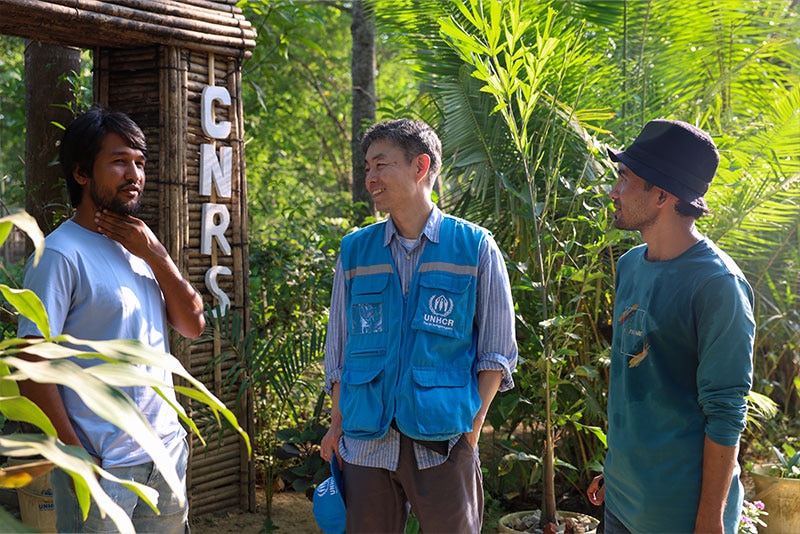
In a refugee camp in Cox's Bazar, Bangladesh, Koji Yanai spoke with the documentary photographers who lives as a Rohingya refugee and reports on their current situation.
In terms of not treating refugees as outsiders, the Displacement Film Fund is consistent with our other support programs. Nothing transcends languages and borders like the movies. They can even inspire sympathy in people who hadn’t previously been so concerned with refugee issues. Film has a special ability to awaken the mind.
Q3: Could you recommend some past examples of “Refugee Cinema”?
Flee by Jonas Poher Rasmussen, a member of the Displacement Film Fund’s selection committee, uses animation to depict the experience of a young man who was forced to flee Afghanistan. Jonas’s efforts to present a holistic personal story rather than simply a “refugee story” earned the film widespread admiration.

FLEE / Nominated for three categories at the 94th Academy Awards (Best Animated Feature, Best Documentary Feature, Best International Feature Film). Awarded Grand Jury Prize at the 2021 Sundance Film Festival. © Jonas Poher Rasmussen
I’d also recommend The Old Oak by Ken Loach. Set in northeast England, it’s the story of a pub that becomes the focal point for a community of displaced people from Syria. It has an astounding ability to convey the perspectives of communities going through hard times.
I’m also fond of Blind Ambition, a rather humorous documentary directed by Warwick Ross and Robert Coe. Four refugees from Zimbabwe find work in South Africa as sommeliers and wind up competing at the global level. Much like the story of the Jamaican bobsled team, it brims with positivity up against steep odds, an encouraging story that would appeal to anybody.

Blind Ambition / A documentary focused on refugees from Zimbabwe who find work as sommaliers at a famed South Africa restaurant and wind up entering an international competition. © 2020 Third Man Films Pty Ltd / Sold by Albatros
UNIQLO Joins Forces to Launch the Displacement Film Fund
As a founding partner of The Displacement Film Fund, UNIQLO has donated €100,000 to help amplify the voices of those forced to flee their homes.
By supporting filmmakers who share powerful stories of displacement, the initiative reflects UNIQLO’s “Made for All” philosophy—with the power of film as a bridge to empathy and understanding of the refugee experience.
The Displacement Film Fund was established to champion and fund the work of displaced filmmakers, or filmmakers with a proven track record in creating authentic storytelling on the experiences of displaced people. The pilot short film funding scheme was launched at the International Film Festival Rotterdam 2025 by UNHCR Goodwill Ambassador Cate Blanchett with support from Master Mind, UNIQLO, Droom en Daad, the Tamer Family Foundation and Amahoro Coalition as founding partners, the Hubert Bals Fund as management partner, and UNHCR, the UN Refugee Agency, as strategic partner.
Being run as a pilot in 2025, the Displacement Film Fund will bestow up to five individual production grants of €100,000. The purpose of the Fund is to support underrepresented voices, especially with filmmakers from countries and regions where local filming and infrastructure is lacking or restrictive.
The five filmmakers were announced by IFFR ahead of a panel discussion at the Cannes Film Festival. Maryna Er Gorbach from Ukraine, Mo Harawe from Somalia, Hasan Kattan from Syria, Mohammad Rasoulof from Iran, Shahrbanoo Sadat from Afghanistan, were selected.
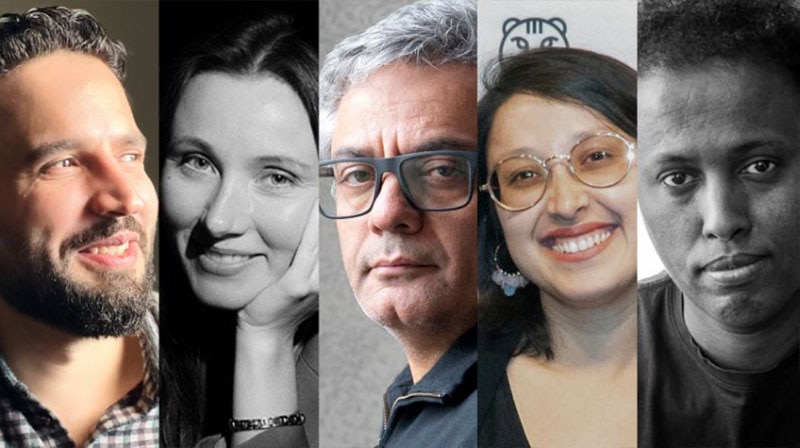
Displacement Film Fund filmmakers, from left to right: Hasan Kattan, Maryna Er Gorbach (credit: Rafal Nowak), Mohammad Rasoulof, Shahrbanoo Sadat, Mo Harawe